Top 5 Website Builders for Agencies in 2025
August 13, 2025
5 min read

CONTENTS
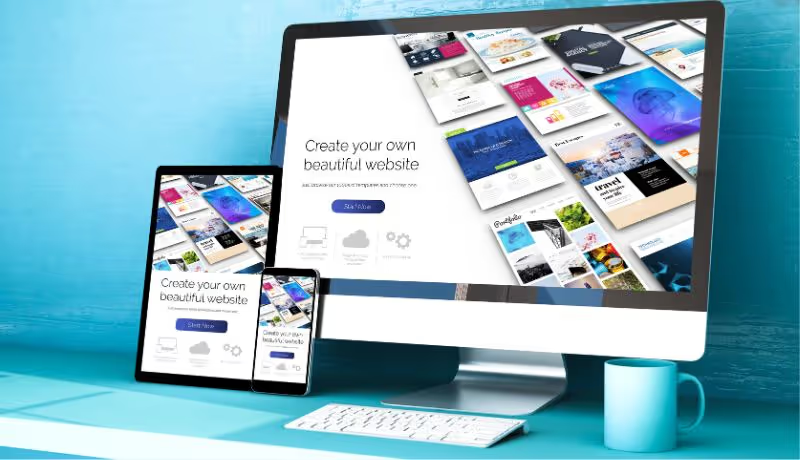
Guest post by Stephen Alemar, Duda.
Running an agency that designs and maintains websites for clients is—even at the best of times—always a bit chaotic.
Constant streams of feedback, design changes, copy alterations, and goal post moving are, more often than not, the norm. And this becomes especially evident when you’re building sites for dozens or hundreds of clients at the same time.
However, with the right set of site building tools it is possible to streamline processes and deliver websites at scale without feeling like you and your team are constantly scrambling to get things done.
Below is a list of the top five website builders favored by agencies in 2025 with details on how each one enables you to build sites at scale.
Duda

What primarily sets Duda apart from most other website builders is that it’s designed from the ground up for use by agency teams.
Thousands of digital agencies across the globe leverage Duda’s capabilities to provide beautiful modern websites for clients across industry verticals at a fraction of the time it will generally take with other site builders.
Key Features of Duda
- Fully White Label: One of Duda’s most unique characteristics is the extent to which the platform can be placed under an agency’s brand. Your logo, colors and brand name can be added to everything from the client login page to the template gallery, website builder, stats emails, support portal, billing pages and more. This places your agency at the center of the user experience and keeps the focus where it belongs—on the outstanding service your team provides.
- Client Management: Duda provides a comprehensive suite of tools designed to streamline client management. These include built-in and custom permissions that enable clients to update and manage their sites without accessing anything that could break them, inline commenting and live previews that speed up the approval process, and automated billing.
- Team Collaboration: Agency owners can assign roles and permissions to the various team members to ensure they can work in tandem without getting in each others’ way. Additionally, Duda allows teams to create their own custom widgets, design section and site templates to speed up the building process.
- Scalable Architecture: Duda offers a flexible platform and robust API to meet almost every site building use case and can be easily integrated into any workflow. Create your own templates, manage sites via content libraries and auto-generate sites based on existing customer data.
- Curated App Store: Duda only includes best-in-breed third-party applications in its App Store to ensure agencies never spend time with frustrating broken or buggy plugins.
- Out-of-the-box SEO & AIO: Duda sites are fine-tuned to appear in both traditional search results, and those generated by AI, by default. This is accomplished by ensuring every site adheres to Google Core Web Vitals, Pagespeed, and structured data best practices, which provides a significant advantage to small- and medium-sized business clients that often rely heavily on appearing in web searches of all kinds to attract new customers.
Conclusion
Duda is the best website builder for agencies with teams that need to be able to build and manage websites at scale.
2. Wix
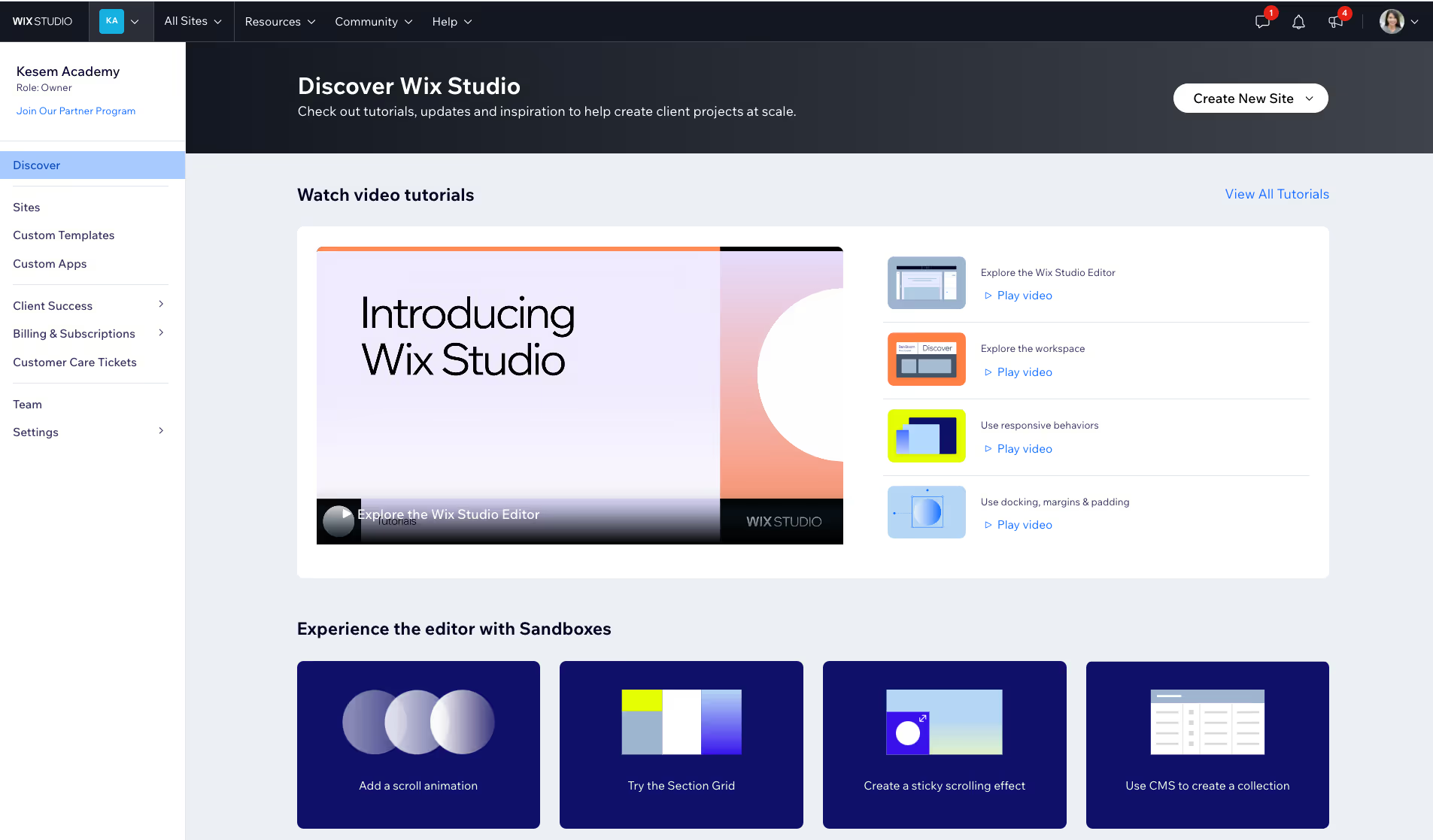
Wix is a well-known website builder that primarily serves small- and medium-sized businesses directly, but also provides agencies with tools intended to serve clients and go to market quickly.
Key Features of Wix
- Easy Drag-n-Drop: Wix provides an intuitive interface that is great for quickly spinning up websites without needing any coding knowledge. This can be a major time-saver for agencies working with clients who have simple requirements or limited budgets. It also reduces the learning curve for junior team members or clients managing their own content post-launch.
- Huge Template Library: Wix offers agencies an incredibly large selection of templates to use as a jumping off point for creating client websites. Nearly every type of industry vertical is available, which can save design teams a significant amount of time during the site building process.
- Extensive App Store: The Wix App Store is vast with seemingly every plugin under the sun available. This range of choice serves as something of a double-edged sword. While agencies are free to work with whatever plugins they and their clients prefer most, there is no guarantee that the chosen app will be the best one available on the market.
Conclusion
Wix is the preferred option for agencies searching for a business-in-a-box type solution because of its ease to get up and running. However, white label capabilities, advanced roles and permissions for team members and clients, and the ability to customize code are fairly limited.
3. Squarespace
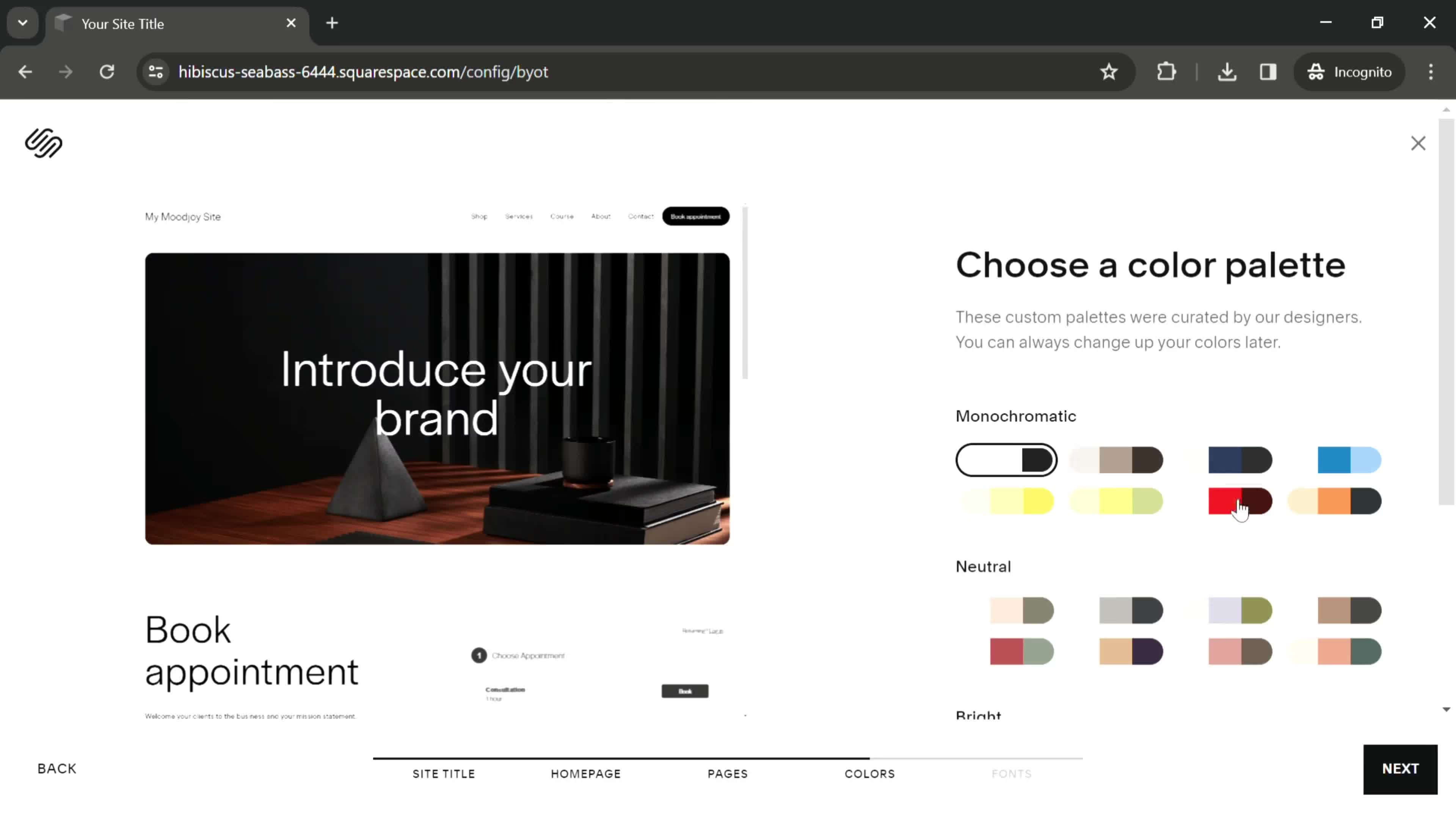
Squarespace has long been a favorite among creatives, small business owners, and solopreneurs for its beautifully designed templates and all-in-one platform. However, the company also provides options for large enterprise organizations that need to maintain a large number of sites at once.
Key Features of Squarespace
- Stunning Template Designs: Squarespace is most well-known for their sleek and modern designs that serve as the basis for all websites built on the platform. Squarespace is so committed to the idea of beautiful sites that it actually is fairly restrictive in the amount of in-depth editing that can be accomplished. This is intended to ensure that all site customizations will still perfectly fit with the design principles baked into its templates.
- Low Maintenance Costs: Once sites are up and running on Squarespace they generally require very little site maintenance which is ideal for clients who may be working with a limited budget.
- Simplified Project Management: Squarespace provides agencies with an all in one platform. Hosting, SSL, content management, security, and updates are all bundled into the Squarespace platform. This keeps overhead costs low and enables agencies to launch sites quickly and easily.
Conclusion
Squarespace provides agencies with gorgeous design aesthetics and simplicity, but is a comparatively rigid platform to work with and does not provide any white label capabilities. Additionally, there are not as many team collaboration and client management tools when lined up against the other website builders on the market.
4. Webflow
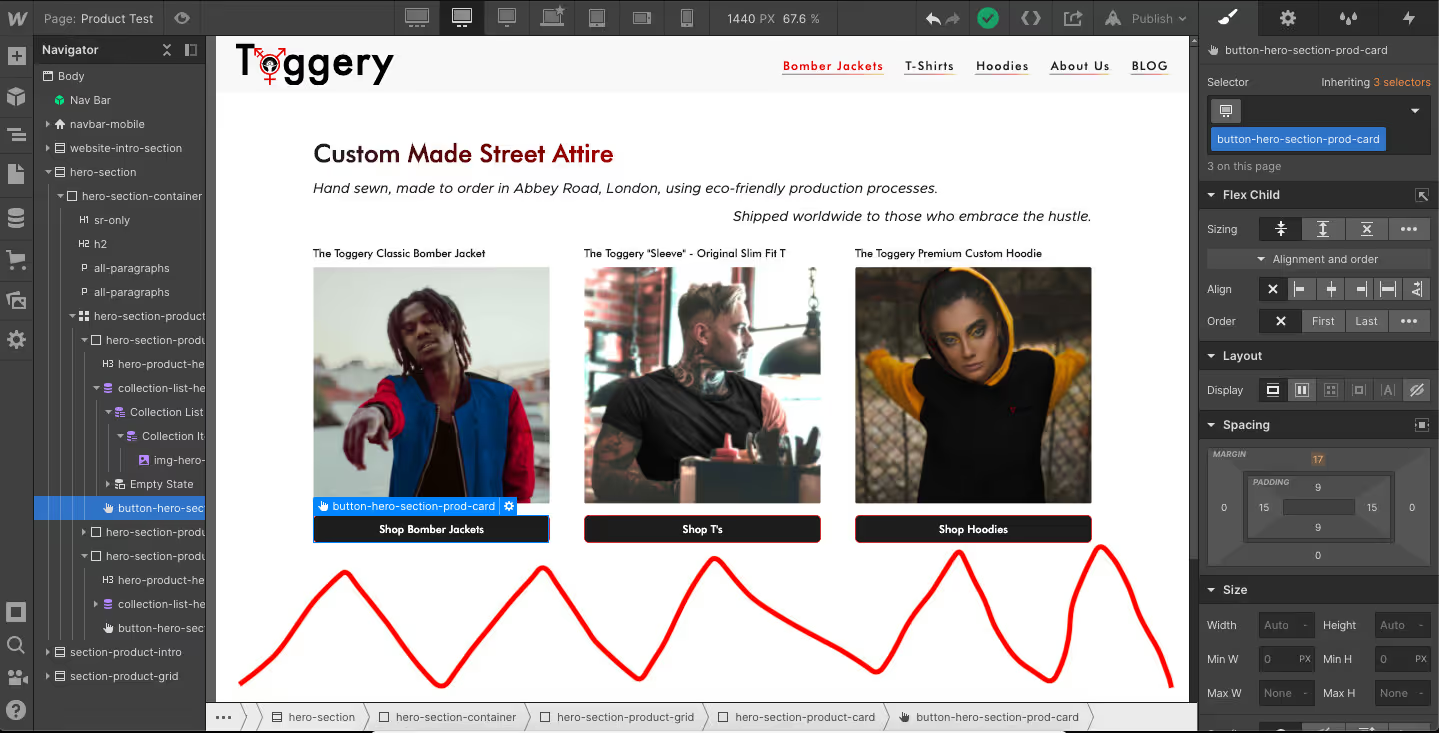
Webflow is a platform loved by developers and agencies looking to provide clients with complex site builds. It is not generally thought of as a platform that is particularly beginner-friendly, but in the hands of the right team, it offers a very powerful set of tools.
Key Features of Webflow
- Complete Design Control: Webflow gives designers full control over every element of the page—down to breakpoints, animations and custom interactions. This makes it a great fit for agencies working with clients who have strong brand identities or unique UX/UI requirements.
- A Powerful & Flexible CMS: Webflow’s built-in content management system allows agencies to create custom content types (called Collections), making it ideal for building blogs, portfolios, directories, press pages, and any type of site that requires these kinds of content-rich pages. Content creators can update these pages without touching design, and the client-facing editor interface is fairly straightforward to use.
- Developer-friendly: By providing API access and robust integrations via tools like Zapier or Make, Webflow is surprisingly extensible. Additionally, the platform enables agencies to create production-ready React components visually in Webflow with its DevLink feature, which streamlines the design to development process.
Conclusion
Webflow is a powerful platform for agencies that need to create complex custom designs and user flows for their clients. However, with great power comes a pretty steep learning curve and Webflow is certainly not for agencies unready to invest heavily in front-end development. Additionally, the platform can become a bit pricey at scale.
5. WordPress
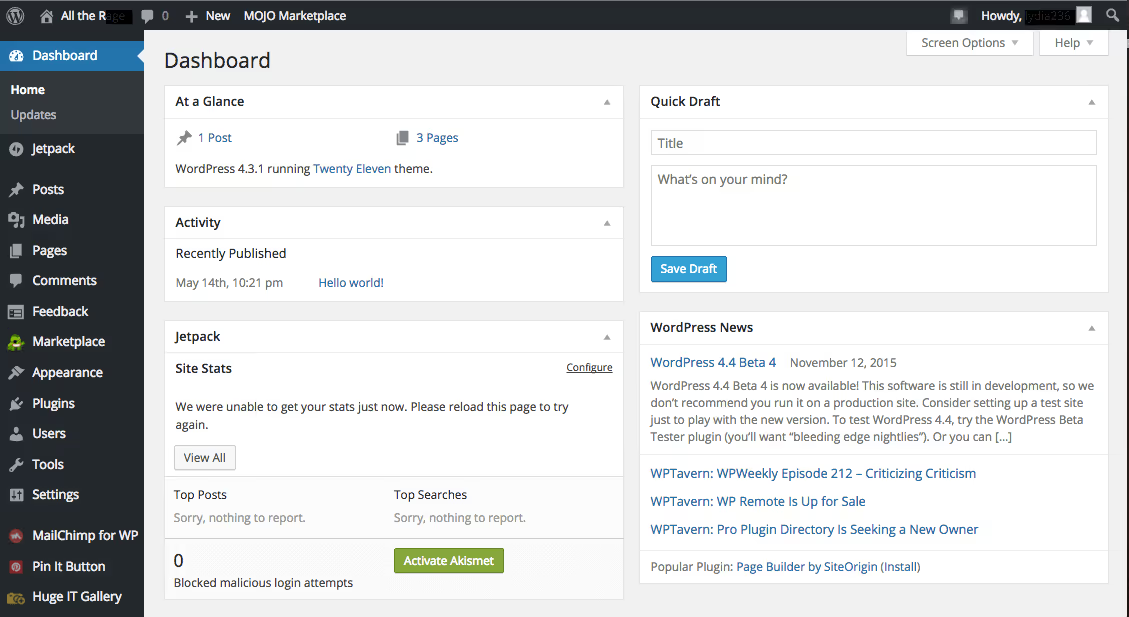
The most popular website building platform of them all, WordPress accounts for approximately 43.5% of all sites found on the world wide web—and for a good reason. The platform has been around longer than all of the other website builders on this list and is used to power some of the most complex sites on the web.
Key Features of WordPress
- Full Flexibility: WordPress gives agencies total control over every part of a website—from front-end design to backend logic. Whether you're building a small brochure site or a complex eCommerce store, the possibilities are virtually unlimited. Agencies can use custom themes, bespoke plugins, and REST APIs to tailor each site to a client’s exact needs.
- Massive Plugin Ecosystem: There are nearly 60k plugins available in the WordPress plugin directory, which enables agencies to add all kinds of functionality to a website without having to build from scratch. SEO, multilingual support, contact forms, and nearly everything else a web developer could think of is likely already available in some form in a WordPress plugin.
- Multisite Support: WordPress Multisite is a feature that allows users to manage multiple websites from a single WordPress installation. It's a powerful tool for creating and managing a network of related sites, all controlled from one central dashboard.This is especially valuable for organizations offering templated sites to franchises, local branches, or niche markets. It simplifies updates, security, and theme/plugin management across large networks.
Conclusion
WordPress is an incredibly powerful tool for agencies that need to create websites for all kinds of clients and its extensibility is essentially unparalleled. However, ongoing maintenance and plugin updates are absolutely necessary and there is no dedicated support to help if and when something goes wrong. To create the ideal set up for agency use, WordPress requires a lot of development work and knowledge of HTML, CSS and JavaScript and other programming languages.
Final Thoughts
Choosing the right website builder depends on your agency’s scale, workflow, and technical capabilities.
Duda is purpose-built for agencies, offering white-label tools, automation, and efficient multi-site management.
Webflow delivers strong design control and CMS functionality, but its steep learning curve and limited multi-site support can slow down larger teams.
WordPress remains the most flexible option, ideal for custom builds—though it requires ongoing maintenance and developer support.
Squarespace and Wix are best suited for simpler, low-touch projects but lack the infrastructure for true scalability.
Ultimately, the right platform balances efficiency, control, and growth potential for your agency’s needs.
.png)


